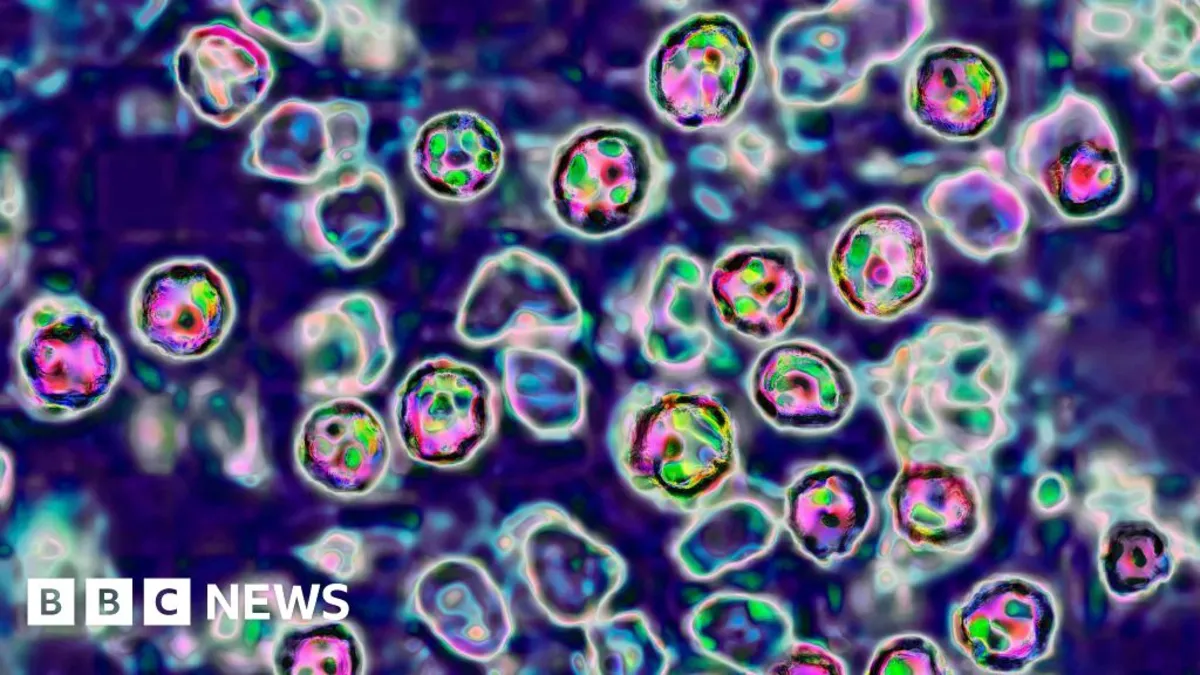
Health officials in two US states, Texas and New Mexico, are actively tracking measles outbreaks as the number of cases rises to nearly 100 individuals. The Texas Department of State Health Services reported on Friday that there have been 90 diagnosed cases in the past month within the South Plains area, located in the north-west part of the state. Notably, at least 77 of these cases were reported in children and teens under the age of 17.
In New Mexico, health officials have identified nine cases of measles in Lea County, which borders Texas to the east. The emergence of these outbreaks highlights the contagious nature of measles, a disease that can be deadly if not addressed promptly.
The current outbreaks are occurring alongside a growing sentiment of anti-vaccine attitudes in the US, including skepticism towards the measles, mumps, and rubella (MMR) vaccine typically administered during childhood. According to health officials in Texas, the reported numbers may be an undercount, as some parents might not report infections or might not realize their child is affected.
Dr. Amesh Adalja, an infectious disease physician and senior scholar at Johns Hopkins University, expressed concern over the preventable nature of these outbreaks, emphasizing that measles is "the most contagious infectious disease known to humans."
Measles presents with symptoms including fever, cough, runny nose, eye irritation, and a distinctive rash. The illness can lead to severe complications, especially for pregnant women and young children, with risks such as pneumonia, neurological impairment, hearing loss, and even death. Survivors are also at risk of developing subacute sclerosing panencephalitis (SSPE), a degenerative brain disease.
Most US children receive two doses of the MMR vaccine, which is 97% effective in preventing measles, as stated by the Centers for Disease Control and Prevention (CDC). Health experts suggest that proper inoculation rates—defined as 95% of a community receiving the measles vaccine—could control or even eradicate the disease.
However, vaccination rates have declined in some communities due to a network of vaccine skeptics questioning the safety and efficacy of vaccinations without evidence. Robert F. Kennedy Jr., recently confirmed as President Donald Trump's health secretary, has faced criticism for his connections to these groups.
While most states require children to receive the MMR vaccine to attend school, many, such as Texas, allow for conscientious exemptions—a non-medical reason to refuse vaccination. In Texas, federal data indicates a 94.3% vaccination rate among kindergarteners for the 2023-2024 school year, while New Mexico achieved 95%. However, a state survey in Texas shows that exemption rates for MMR and other required vaccines are increasing.
In Gaines County, where 57 of Texas's cases were reported, exemption rates have surged over the last decade. State data reveals that 17.62% of students had a conscientious exemption to at least one required vaccine during the 2023-2024 school year, compared to 7.45% in 2013-2014. Neighboring Terry County, home to 20 cases, saw exemption rates rise from zero to 3.73% over the same period.
Texas officials noted that of the 90 cases in their state, 85 were among individuals who were either unvaccinated or whose vaccination status was unclear. CBS reports suggest that the area is home to a large Mennonite community, which traditionally has low vaccination rates due to religious beliefs.
Despite this, some officials remain hesitant to intervene. Albert Pilkington, CEO of the nearby Seminole Hospital District, remarked to the Texas Standard, "We respect everyone's right to vaccinate or not get vaccinated. That's just what it means to be an American, right?"
American children have been vaccinated against measles since 1963. The vaccine was later improved and combined with vaccines for mumps and rubella, gaining a reputation for safety. Before the introduction of the vaccine, approximately 48,000 people were hospitalized with measles annually, and 400–500 people died each year. In 2024, the US reported 285 cases with 114 hospitalizations.
To combat the current outbreaks, health officials in New Mexico are offering a free vaccine clinic this week to enhance protection. In Texas, residents are encouraged to contact their doctors or visit a clinic to receive the vaccine if they have not already done so.